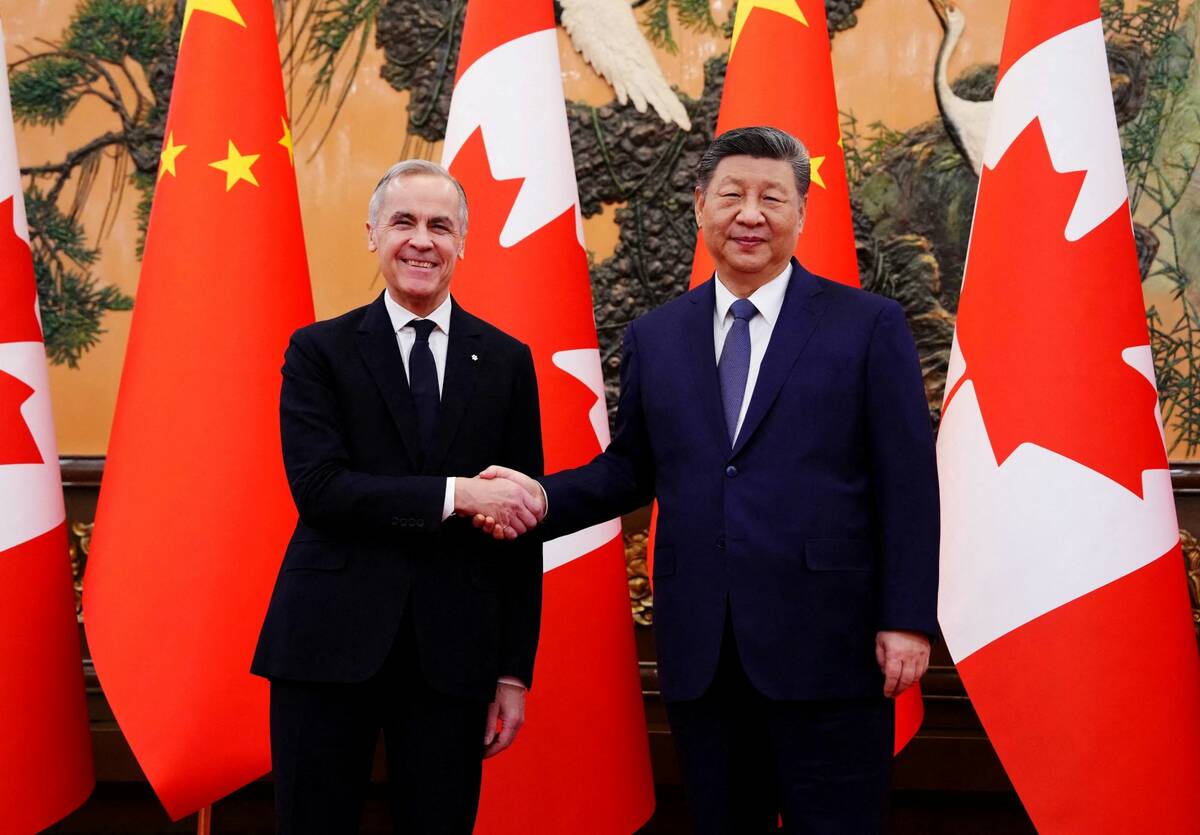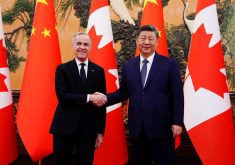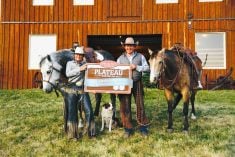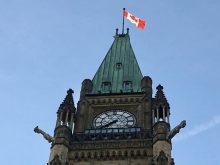If ascendant Republicans act on what they say was the clear message sent by voters Nov. 2, the 112th Congress ain’t gonna’ be a tea party.
Oh, something will boil, alright. It may be the fat most politicians claim is stored in all those pork barrels on Capitol Hill. After that, maybe some of the waddling herdmates of those already-barrelled pigs may get scalded as they travel, again, to the public trough.
Yes, I know, scalding isn’t the same thing as boiling, but hogs scalded on the farm of my youth never waddled well again.
Read Also

Pragmatism prevails for farmers in Canada-China trade talks
Canada’s trade concessions from China a good news story for Canadian farmers, even if the U.S. Trump administration may not like it.
In fact, today’s Hot Water Gang – Tea Party winners, conservative think-tanks and small-government advocates – already are gathering wood for the fire they promise to light when the new Congress convenes Jan. 3. One of first items all say they wish to dunk is the U.S. Department of Agriculture.
The Heritage Foundation, whose stated mission is to “formulate and promote conservative public policies,” didn’t even wait for election results to issue a tough budget-cutting blueprint.
In the Oct. 28 document titled “How to Cut $343 Billion from the Federal Budget” in the coming fiscal year, Heritage proposed the new Congress make four, multi-billion-dollar-plus cuts to USDA’s farm and food programs. Those four, and the annual projected savings by Heritage, are:
Replace farm subsidies with Farmer Savings Accounts and improved crop insurance to save $15 billion;
Eliminate the Foreign Agriculture Service to save $2.03 billion;
Merge USDA’s four ag outreach and research agencies and cut their budget in half to save $1.5 billion and
That oldie but goodie, fund the Food Safety and Inspection Service with user fees to save $1 billion.
Heritage doesn’t mention how much tea it might take to get farmers to swallow complete elimination of direct program payments.
One estimate might be all that China grows, because Frank Lucas, the Oklahoma Republican ticketed to lead the House Ag Committee, is a well-known supporter of direct payments. With an almost two-to-one GOP committee majority behind him, Lucas is expected to push for higher, not lower, direct payments.
Similarly, killing the Foreign Ag Service is an already-dead idea. The reason is obvious to anyone with one acre of corn or two acres of pasture: Killing FAS leaves American farmers blind to market-boiling events around the world like a Ukrainian drought or Chinese food needs.
Global players like Cargill, ADM and Monsanto, who have a hundreds of darting eyes and thousands of dancing fingers seeing and reporting everything everywhere, however, won’t be. That means they, not USDA and not farmers, will be the first to know vital market-moving information. That should guarantee them last place in the race to the higher profits every time.
And, golly, what’s a Republican budget plan (eight out of eight Bush Administration budget outlines included it) without the “user fee” idea for USDA food inspection and food safety enforcement?
Both sides of the political aisle have rejected industry-led, user fee-food inspection for decades, believing – correctly and wisely – it is galacticly stupid to allow the fox to pay a dime or a dollar to run the chicken house.
None of these practical consequences may matter to the new crop of tea-partying Republican House and Senate members. They say Nov. 2 was a rejection of past policies and most politicians.
Well, OK. So, specifically, where are they gonna’ cut USDA?
Alan Guebert is a syndicated columnist from Delavan, Ill.
———
Frank Lucas, the Oklahoma Republican ticketed to lead the House Ag Committee, is a well-known supporter of direct payments.














